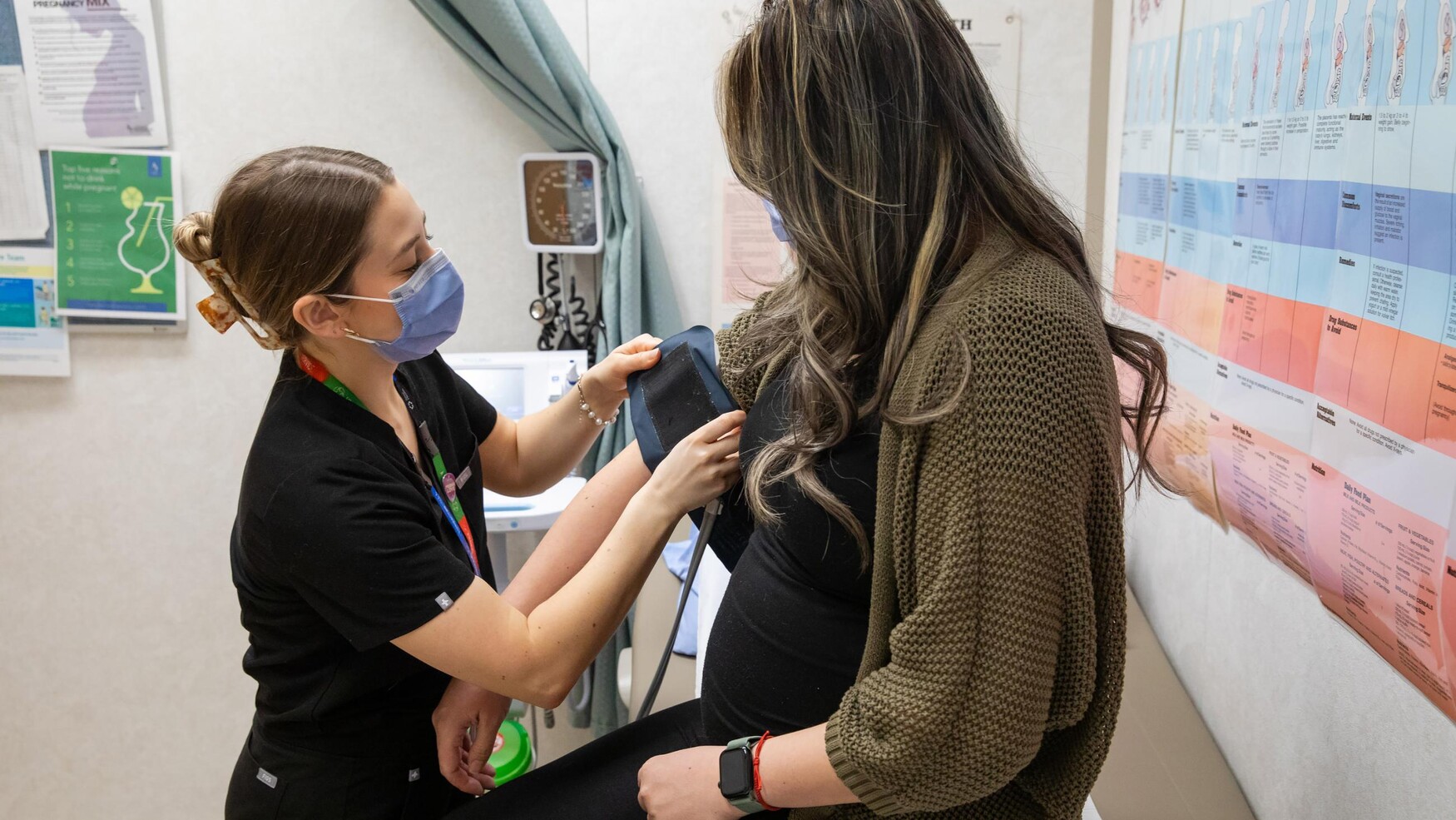Mobile Menu
- Education
- Faculty
- Research
- News & Events
- Divisions
- Equity, Diversity & Inclusion
- About Us

Excess iron could lead to preeclampsia, a common yet severe complication during pregnancy.
Affecting up to eight percent of all pregnancies, preeclampsia causes a sudden increase in blood pressure and poses risks to both mother and baby. The condition stems from problems with the placenta, the vital organ that links the mother and baby, but the mechanism remains unclear.
Now, researchers at Sinai Health — including Isabella Caniggia, a professor in the ob-gyn department, and lead investigators Dr. Sruthi Alahari and Chanho Park — have discovered that too much iron can harm the placenta, causing it to release harmful molecules into the bloodstream, where they can damage blood vessels and potentially impact blood pressure.
The team’s study was recently published in the journal Circulation Research.

The research adds to our understanding of what causes preeclampsia and could help doctors prevent it or treat it better. It also shines a new light on the role of iron in pregnancy.
“Most pregnant people will be advised to take iron supplements to support the growth of the baby,” says Dr. Caniggia, a Senior Investigator at the Lunenfeld-Tanenbaum Research Institute, part of Sinai Health, and Canada Research Chair in Placental Biology in Pregnancy and Disease.
“But our research, and that of others, forces us to question whether iron supplements are good for every pregnancy.”
Their findings show that low oxygen levels in the placenta lead to excessive iron accumulation. Although this low-oxygen environment is crucial for early placental development, at later stages, when combined with iron surplus, it can cause oxidative stress and cell death through a process known as ferroptosis. As placental cells die, they release the harmful byproducts of oxidative stress into the bloodstream, where they can damage the blood vessels.
“Our findings indicate that an overload of iron in the placenta, coupled with insufficient antioxidant defenses, precipitates the production of harmful molecules,” explains Dr. Caniggia. “This cascade impairs the placenta and releases damaging molecules into the maternal circulation, impacting the mother's vascular system and contributing to the hallmark hypertension of preeclampsia.”
The research was made possible thanks to the patients who delivered babies at Mount Sinai Hospital and donated their placental tissue and blood through the Research Centre for Women’s and Infants’ Health. This allowed the researchers to directly compare samples from healthy pregnancies with those affected with preeclampsia.
“Any woman from any social background or economic status can develop preeclampsia, and this research helps us understand better why preeclampsia happens," says Dr. Caniggia. "It also shows us that managing iron levels could be a new way to help prevent preeclampsia and protect the health of mothers and babies.”
The research was supported by funding from the Canadian Institutes of Health Research and the National Institutes of Health in the U.S.
